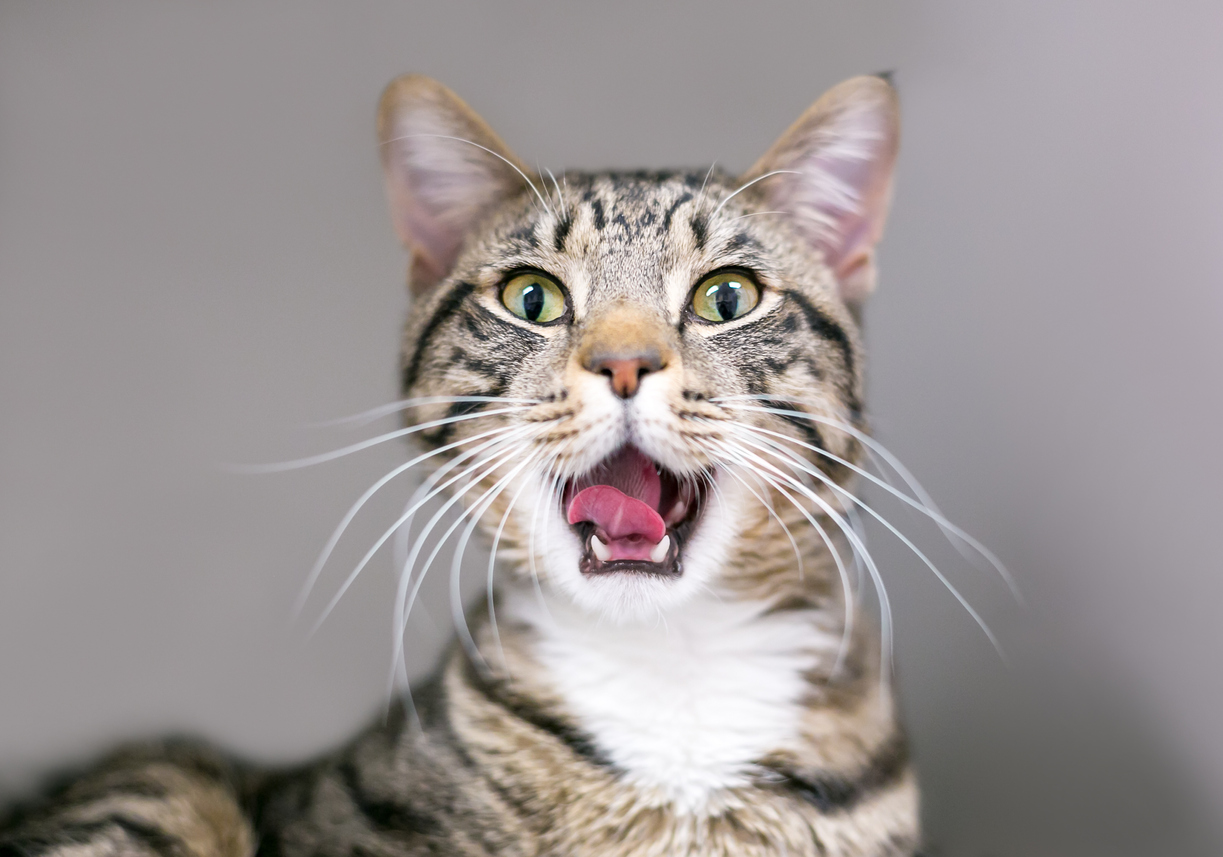Wellness examination in cats
What is a wellness examination?
A wellness examination is a routine medical examination of a cat who appears healthy, as opposed to an examination of a cat who is ill. A wellness examination may also be called a 'check-up' or a 'physical examination'. The focus of a wellness examination is the maintenance of optimal health.
How often should my cat have a wellness examination?
The answer to this question depends on your cat’s age and current health status. During early kittenhood, wellness exams are recommended on a monthly basis, while for the average adult cat, annual wellness examinations are the norm, and semi-annual examinations are recommended for middle aged, senior, and geriatric cats.
Pets age at a faster rate than people. It is a popular misconception that one calendar year equates to seven years in a cat's life. In fact, in one calendar year a cat may age the equivalent of four to sixteen years in a human's life. The reason for this dramatic difference is that kittens reach maturity very quickly and are essentially adolescents or young adults by one year of age; therefore, they are considered to be the equivalent of a 15-16-year-old by their first birthday. During the second year, the rate of aging slows down a little so that your cat will be the equivalent of a 24-25 year old by their second birthday. After that, the rate of aging stabilizes to about 4 cat years per calendar year. This means that cats are middle-aged by about 6 years of age and are considered to be seniors between the ages of 11 and 14 years of age. Geriatric cats are those over 15 years of age.
Your veterinarian is in the best position to recommend how often your cat should have a wellness examination based on her age, lifestyle, and health status.
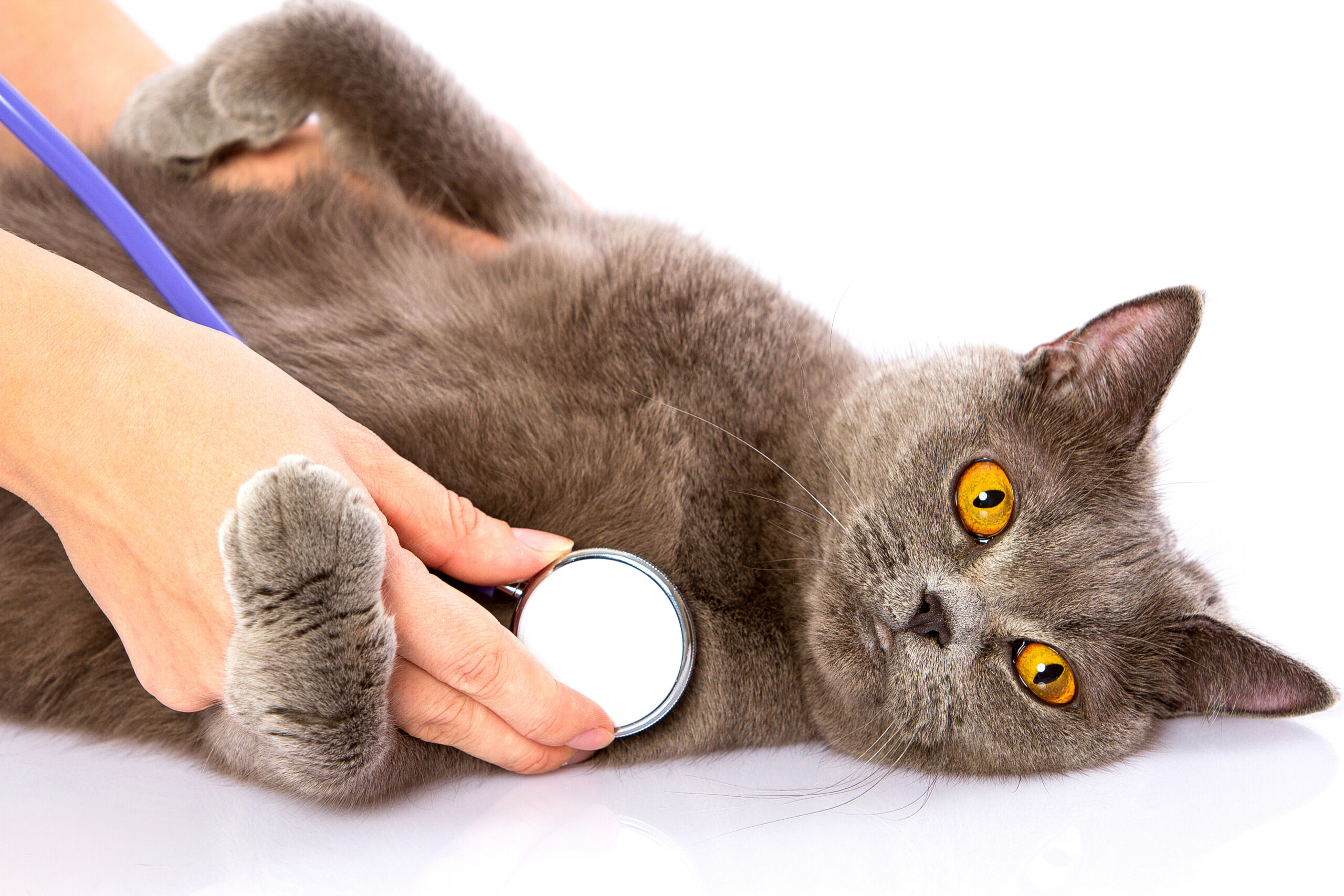
What will my veterinarian check during a wellness examination?
During a routine wellness examination, your veterinarian will ask you questions about your cat's diet, exercise, thirst, breathing, behavior, habits, litterbox habits, lifestyle (indoors or outdoors), and general health. Your veterinarian will also perform a physical examination of your cat. Based on your pet's history and physical examination, your veterinarian will then make recommendations for specific preventive medicine treatments such as vaccination, parasite control (for both external parasites such as fleas, ticks and ear mites, and internal parasites such as worms or heartworm), nutrition, skin and coat care, joint health, weight management, or dental care. In addition, your veterinarian will discuss your cat's individual circumstances and decide whether any other life-stage or lifestyle recommendations would be appropriate.What does my veterinarian check during a physical examination?
A physical examination involves observing the general appearance of your cat, listening to their chest with a stethoscope (auscultation) and feeling specific areas of the body (palpation).
Your veterinarian will observe or inspect:
- Your cat's general level of alertness and interest in its surroundings.
- Your cat's general body condition - whether your pet has an appropriate body weight and body condition (neither too fat nor too thin).
- Your cat’s muscle condition to check for any muscle wasting.
- The haircoat - looking for excessive dryness, excessive oiliness, evidence of dandruff, excessive shedding, or abnormal hair loss.
- The skin - looking for oiliness, dryness, dandruff, lumps or bumps, areas of abnormal thickening, etc.
- The eyes - looking for redness, discharge, evidence of excessive tearing, abnormal lumps or bumps on the eyelids, how well the eyelids close, cloudiness, or any other abnormalities.
- The ears - looking for discharges, thickening, hair loss, or any other signs of problems.
- The nose and face - looking for symmetry, discharges, how well your cat breathes, whether there are any problems related to skin folds or other apparent problems.
- Mouth and teeth - looking for tartar build-up, periodontal disease, retained baby teeth, broken teeth, excessive salivation, staining around the lips, ulcers in or around the mouth, etc.
Your veterinarian will auscultate:
- The heart - listening for abnormal heart rate, heart rhythm ("skipped beats" or "extra beats"), or heart murmurs.
- The lungs - listening for evidence of increased or decreased breath sounds.
Your veterinarian will palpate:
- The pulse - depending on the results of auscultation, your veterinarian may simultaneously listen to the chest and palpate the pulse in the hind legs.
- The lymph nodes in the region of the head, neck, and hind legs - looking for swelling or pain.
- The throat - looking for evidence of abnormalities in the thyroid glands.
- The legs - looking for evidence of lameness, muscle problems, nerve problems, problems with the paws or toenails, etc.
- The abdomen - feeling in the areas of the bladder, kidneys, liver, intestines, spleen, and stomach in order to assess whether these organs appear to be normal or abnormal, and whether there is any subtle evidence of discomfort.
In some cases, you may not even be aware that your veterinarian is conducting certain parts of a routine physical examination, particularly if your veterinarian does not detect any abnormalities.
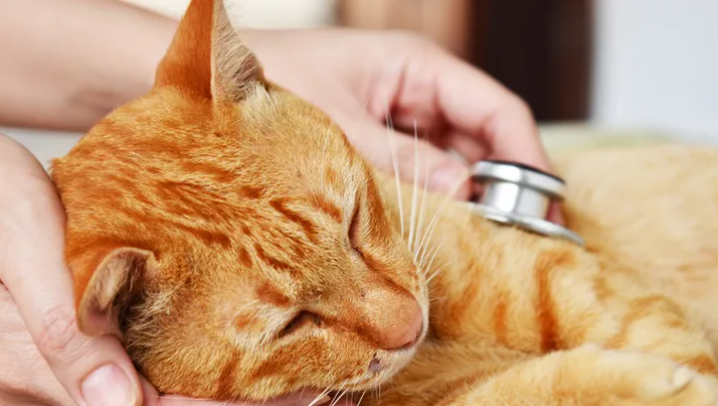
What else might be checked during a wellness examination?
Your veterinarian will recommend that a fresh sample of your cat’s feces (bowel movement) be collected prior to the wellness examination. This sample will be processed and microscopically evaluated for the presence of parasite eggs. In kittens, monthly fecal examinations are extremely important since many kittens have intestinal parasites. Your veterinarian may also recommend heartworm testing if you live in an area where there is a high incidence of this parasitic disease.
As part of a complete wellness examination, your veterinarian will usually recommend wellness screening tests. There are four main categories of wellness testing recommended for cats: complete blood count (CBC), biochemistry profile, urinalysis, and thyroid hormone testing. Within each category, your veterinarian will advise you about how extensive the testing should be. In younger cats without noticeable health complaints, relatively simple testing may be adequate. In middle-aged, senior, or geriatric cats, more comprehensive testing is advisable. For older cats, additional wellness screening tests may include chest or abdominal radiographs (X-rays) to assess the size and appearance of the internal organs, such as the heart, lungs, kidneys, and liver, or radiographs of the skeletal system to look for degenerative changes in the bones or joints, or blood pressure determination.
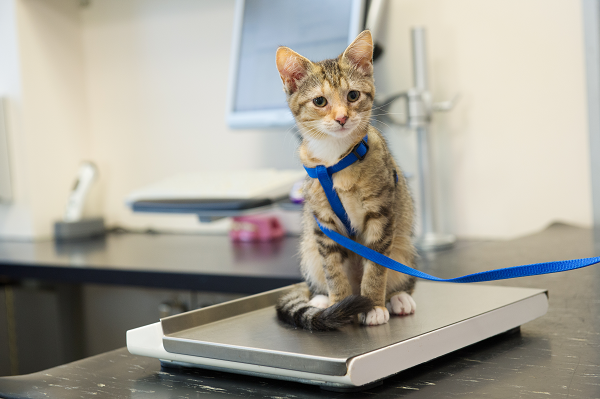
Why are these additional tests recommended?
Cats cannot tell you how they are feeling, and as a result, disease may be present before you are aware of it. To further complicate matters, as part of their survival instincts, most cats will hide signs of disease in the early stages. This means that a health condition may become highly advanced before your cat shows any obvious or recognizable problems. Some early warning signs may be detected by your veterinarian during the physical examination, or subtle changes that are suggestive of underlying issues may be found, prompting recommendation for further testing as outlined above.
If a disease or condition can be detected before your cat shows obvious signs of illness, steps can often be taken to manage the problem before irreversible damage occurs, and the prognosis for a successful outcome improves. In addition, early detection and treatment is often less costly than waiting until a disease or problem becomes advanced enough to affect your cat’s quality of life.
Wellness examinations and testing are particularly important in senior and geriatric cats, since there is a greater chance that underlying disease may be present. This is the reason why semi-annual examinations are recommended for senior cats.
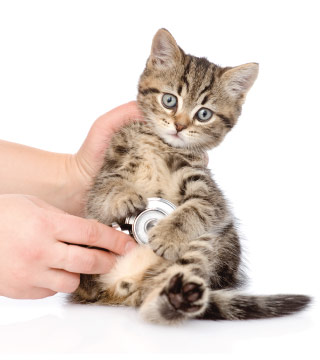
Is there anything I need to do to prepare my cat for a wellness examination?
When you book the appointment with your veterinarian, you should ask whether you should fast your cat before the visit. You should also ask whether you should bring in fresh urine or fecal samples.
Prepare yourself with some basic information, such as the brand and type of food that your cat eats, whether your family feeds any table scraps, whether you give your cat any supplements, and whether anybody in the family has noticed any problems. This is also the time that you should take note of any concerns you might have and make inquiries into optimal health maintenance strategies for your furry friend.



